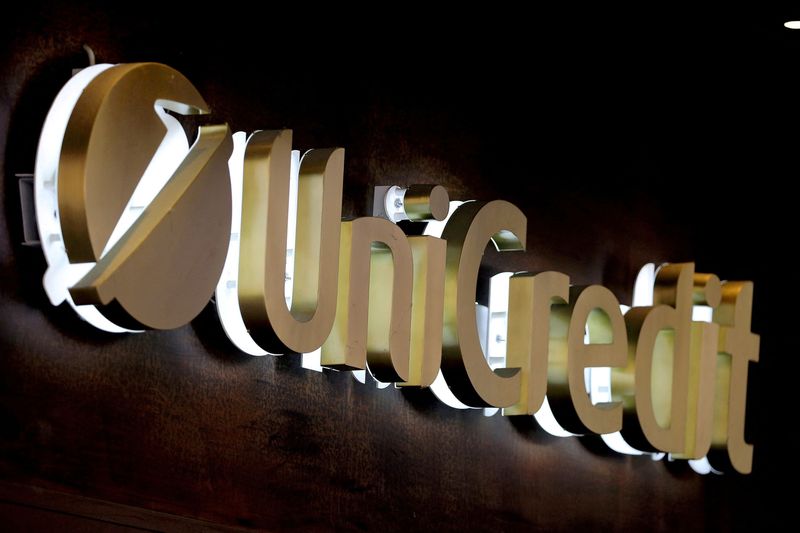UniCredit says CEO’s salary would rise if pay policy rejected
2023.03.17 06:25

© Reuters. FILE PHOTO: The UniCredit bank logo in the old city centre of Siena, Italy, June 29, 2017. REUTERS/Stefano Rellandini
By Valentina Za
MILAN (Reuters) -UniCredit has told proxy advisers that their recommendation to reject the Italian bank’s new remuneration policy would result in higher fixed pay for CEO Andrea Orcel without a more challenging framework.
UniCredit has proposed a new remuneration structure for its CEO that would boost his pay package by 30% if he beats a new set of targets for 2023, while penalising underperformance more than in the past.
Hitting the targets would see Orcel’s pay unchanged at an overall 7.5 million euros, with a reduction in the variable component offsetting a 30% increase in the fixed part to 3.25 million euros.
“The increased quantum of fixed salary is the one element of this proposal that is an act of the board and is not voted on at the AGM,” UniCredit said in a letter to the advisors seen by Reuters.
“At this time of war for talent, our organisation cannot afford to have an incentive system for the CEO which is not aligned with the philosophy we apply to the rest of the organisation,” it added.
Rejecting the remuneration proposal, UniCredit said, would leave in place targets set in the past and remove proposed changes such as paying the variable part all in shares, without a 20% cash component, as well as spreading it over a longer period of time.
Orcel narrowly dodged a shareholder revolt over pay when he first arrived at UniCredit as investors took aim at a 4.8 million euro sign-on bonus and a 15 million euro severance payment.
“The 15 million euro max limit is a theoretical cap and not a guaranteed severance arrangement,” UniCredit wrote in the letter adding that it was “disappointing that the details of this element have remained misunderstood … given the amount of time spent with the proxy advisor to explain.”
UniCredit said eight consecutive quarters of year-on-year growth and “exceptional per-share value creation” created “an impressive track record” that warranted the pay changes.








